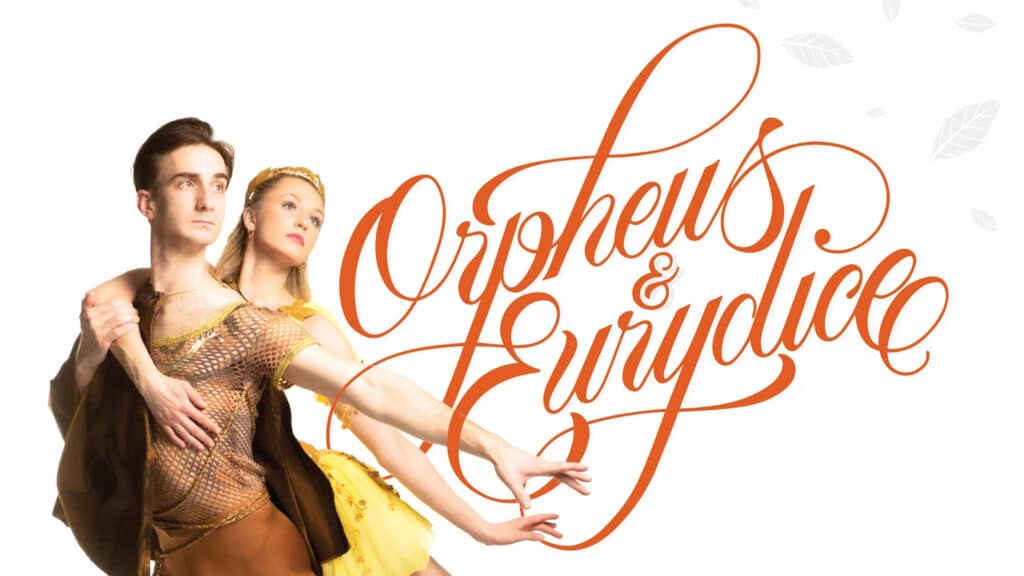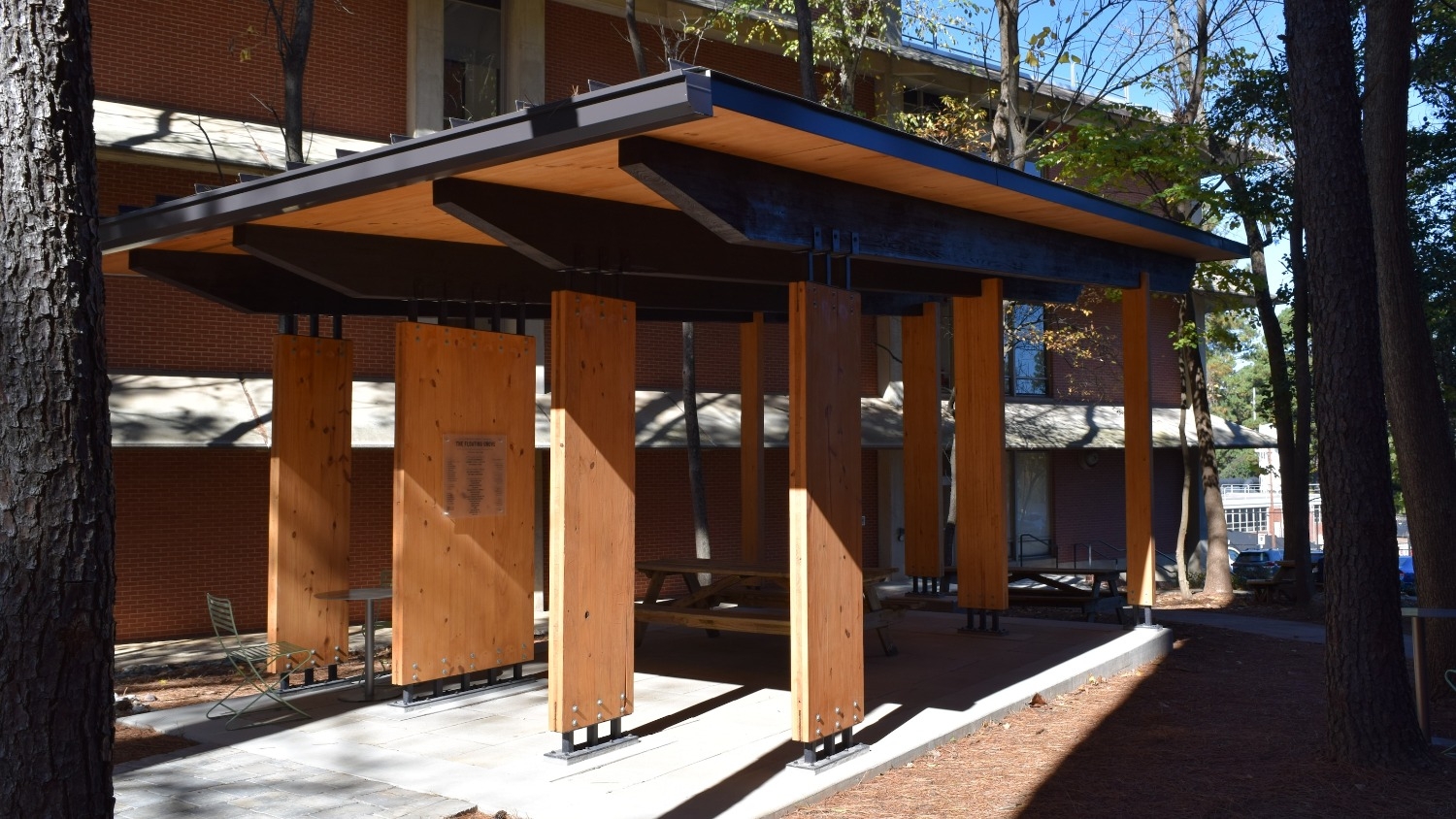Setting Love to Music

Voices is a series of first-person narratives written by members of the NC State community reflecting on experiences that have shaped their personal and professional lives. J. Mark Scearce, a professor of media, arts, design and technology in the College of Design, shares how the experience of composing the score for a classic tale of love unexpectedly intertwined with a love story that unfolded in his own life.
Alongside my work as a professor in the College of Design, I’m also a professional composer, and I’ve written the scores for 12 ballets staged by Carolina Ballet over the past 25 years. When Robert Weiss, the founder of Carolina Ballet, and I finished our production of Macbeth in May 2016, we set our sights on the legend of Orpheus, the hero of ancient Greek myth whose skill as a musician could defeat even the power of death. I had wanted to write an Orpheus story for years, and I was eager to begin as I left Raleigh for Prague in summer 2016.
I was part of a team helping to expand the College of Design’s architecture outpost into what would become the NC State European Center in Prague. While I was living in the same neighborhood Mozart did 230 years earlier when he composed his opera Don Giovanni, my thoughts about the Orpheus ballet revolved around the power of music — to convey emotion, to communicate, to sway, to assuage, to move, to remind us of what’s important: love, life, connection, devotion, stewardship, union, reunion, memory.
In the legend, Orpheus’ great love was Eurydice, with whom he spent such a short time before losing her — twice. The first time a snakebite killed her, and her soul traveled to the Underworld. And Orpheus followed her there, and upon his arrival he played such beautiful music that he convinced Hades, lord of the Underworld, to give her back.
However, Hades freed Eurydice on one condition: Orpheus had to walk in front of her on their return to the world of the living, and he was forbidden to look back at Eurydice until they both passed out of the Underworld. Once they were almost free, Orpheus looked back, in haste and joy — looked back too soon, and lost her again. Forever. It is the greatest love story ever told. And one of the saddest. That second loss kills, but it’s universal, as we’ve all lost an enduring love.
Until six years ago, at the age of 56, I could honestly say I’d never been in love. I’d loved and lost, but I’d never experienced the dizzying heights spoken of by poets. Then I fell in love with S., a Raleigh girl born and bred, who lacked formal education but had a natural ear. And a beauty that could set ships to sail.
I’d met S. almost a decade before, when she brought one of her daughters to a North Carolina Symphony concert to hear an orchestra premiere of mine. A couple of years later, she appeared in my office with a brand-new baby, whom I sang to sleep on my chest while S. and I talked shop.
An Unexpected Message
But our lives went their separate ways. In the interim, I ended a 25-year marriage, and then I was in Prague, thinking of Orpheus, when S. emailed asking me to coffee. I told her I was 5,000 miles away, yet something in her invitation told me to return, so at the first break I flew to Raleigh. There I learned she was now without a husband, and her daughters without a father. And I applied for the opening.
By summer 2017 we were madly in love, with the letters to prove it, and I was wrapping up my Prague assignment as quickly as I could. All the while, every love song I wrote for S. found its way into my new Orpheus score. There was Apollo, teaching Orpheus the lyre. The lovers’ first dance in a wooded glen. Orpheus’ moving appeal to Hades, at which even the Furies wept. The long, treacherous climb upward out of the land of the dead, toward the light. And last, a nightingale singing over Orpheus’ grave.
By the time I returned to Raleigh permanently at Thanksgiving 2017, Orpheus & Eurydice was written, a musical love letter to S. And there it sat, unperformed, while three smaller ballets came to stage. Then the pandemic hit and made it feel as if Orpheus would never happen.
Fortunately, in this 25th anniversary season for the Carolina Ballet, Orpheus & Eurydice will at last be seen and heard, six years after its composition — the longest span between creation and performance in my professional career. And just in time to celebrate my 10 years in the College of Design, which also happens to coincide with the college’s 75th anniversary!

At the top of the Orpheus score’s first page, and at the beginning of all 50 parts, is the inscription “To S., my Eurydice.” When I first wrote those words six years ago I meant them as “muse,” “inspiration,” just as Orpheus’ love spurred his music to move trees and stones, let alone the powers of heaven and hell.
A lot can happen in six years. Three years in, when past traumas resurfaced, S. and I parted for a time; but we worked through those traumas, revived our love and grew stronger together. Three more years followed — the best years of my life. And I’d be lying if I said I’d never heard church bells in all that time. We often teased each other about finding the nearest church and being done with it. I finally decided that after six years together, I was going to ask her to marry me at the premiere of Orpheus.
But as I led the way out of hell toward our dreams and aspirations, my relationship with S. fell to that inscrutable second death, the kind where fear stymies action, legends recede to rarefied myth and the past rises up to eclipse any hope for the future. Like Orpheus, I lost my great love — twice. The second time, forever.
S. will always be the love of my life, inspiring what I consider the greatest music I’ll ever write. The greatest love story ever told. And the saddest.
The world premiere of Carolina Ballet’s Orpheus & Eurydice will take place Thursday, April 27, at 7:30 p.m. at the Martin Marietta Center for the Performing Arts (formerly known as the Duke Energy Center), with live music performed by the Chamber Orchestra of the Triangle. Performances run April 27-30. Tickets can be purchased online.
This post was originally published in NC State News.


